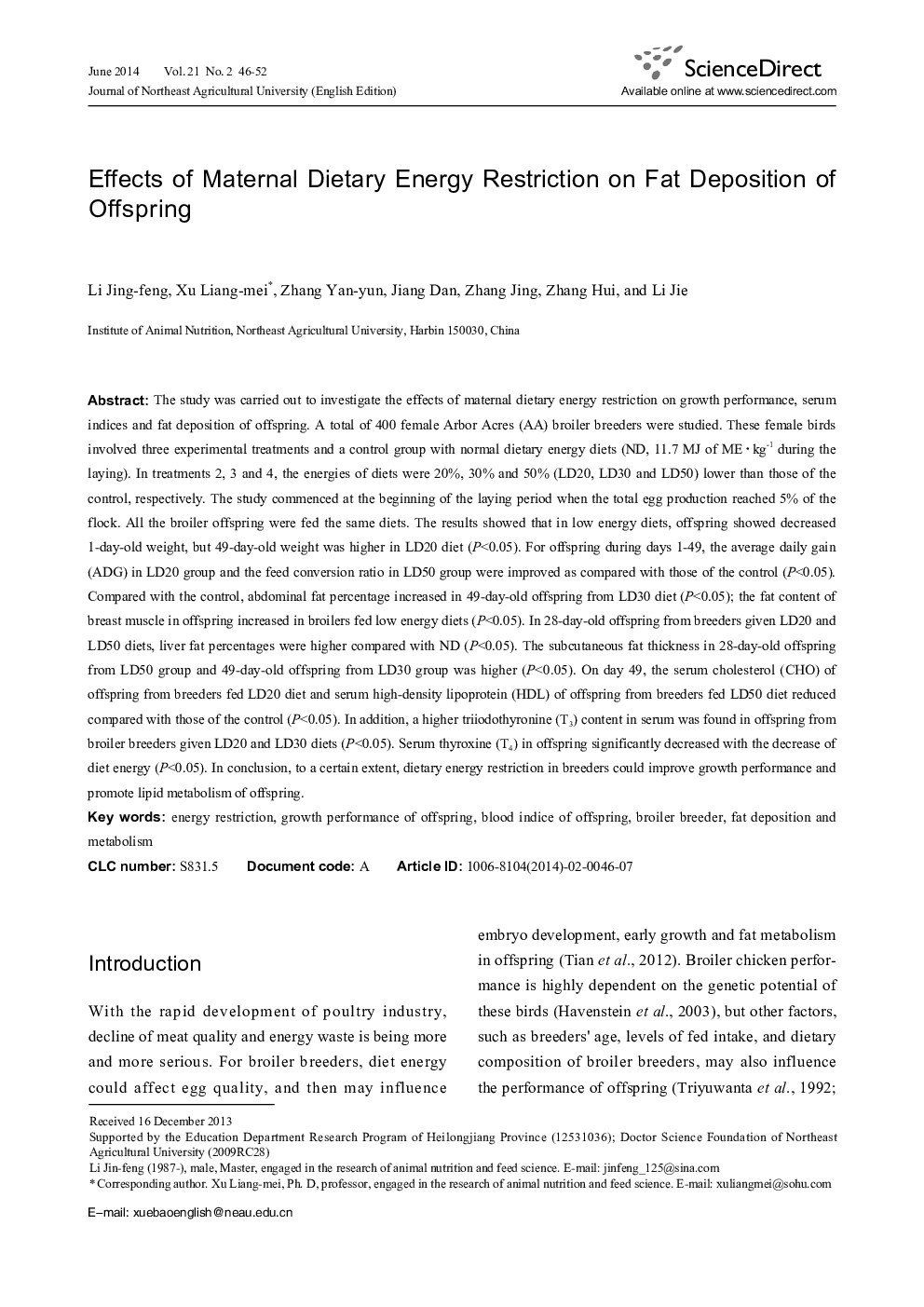| کد مقاله | کد نشریه | سال انتشار | مقاله انگلیسی | نسخه تمام متن |
|---|---|---|---|---|
| 4495353 | 1318755 | 2014 | 7 صفحه PDF | دانلود رایگان |
The study was carried out to investigate the effects of maternal dietary energy restriction on growth performance, serum indices and fat deposition of offspring. A total of 400 female Arbor Acres (AA) broiler breeders were studied. These female birds involved three experimental treatments and a control group with normal dietary energy diets (ND, 11.7 MJ of ME
• kg−1 during the laying). In treatments 2, 3 and 4, the energies of diets were 20%, 30% and 50% (LD20, LD30 and LD50) lower than those of the control, respectively. The study commenced at the beginning of the laying period when the total egg production reached 5% of the flock. All the broiler offspring were fed the same diets. The results showed that in low energy diets, offspring showed decreased 1-day-old weight, but 49-day-old weight was higher in LD20 diet (P<0.05). For offspring during days 1-49, the average daily gain (ADG) in LD20 group and the feed conversion ratio in LD50 group were improved as compared with those of the control (P<0.05). Compared with the control, abdominal fat percentage increased in 49-day-old offspring from LD30 diet (P<0.05); the fat content of breast muscle in offspring increased in broilers fed low energy diets (P<0.05). In 28-day-old offspring from breeders given LD20 and LD50 diets, liver fat percentages were higher compared with ND (P<0.05). The subcutaneous fat thickness in 28-day-old offspring from LD50 group and 49-day-old offspring from LD30 group was higher (P<0.05). On day 49, the serum cholesterol (CHO) of offspring from breeders fed LD20 diet and serum high-density lipoprotein (HDL) of offspring from breeders fed LD50 diet reduced compared with those of the control (P<0.05). In addition, a higher triiodothyronine (T3) content in serum was found in offspring from broiler breeders given LD20 and LD30 diets (P<0.05). Serum thyroxine (T4) in offspring significantly decreased with the decrease of diet energy (P<0.05). In conclusion, to a certain extent, dietary energy restriction in breeders could improve growth performance and promote lipid metabolism of offspring.
Journal: Journal of Northeast Agricultural University (English Edition) - Volume 21, Issue 2, June 2014, Pages 46-52
